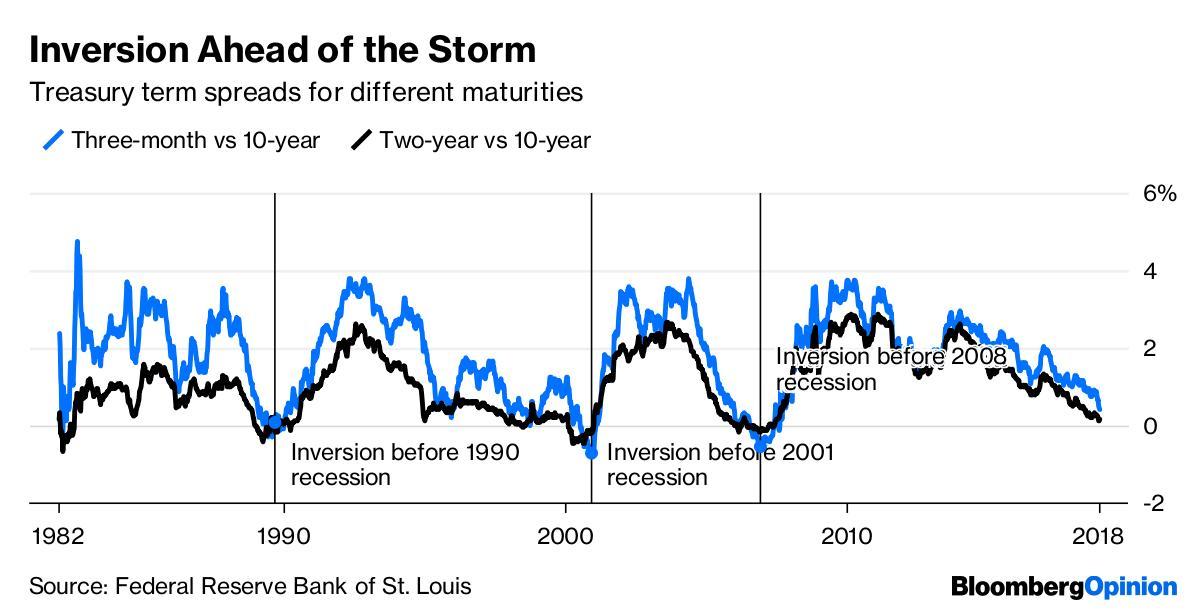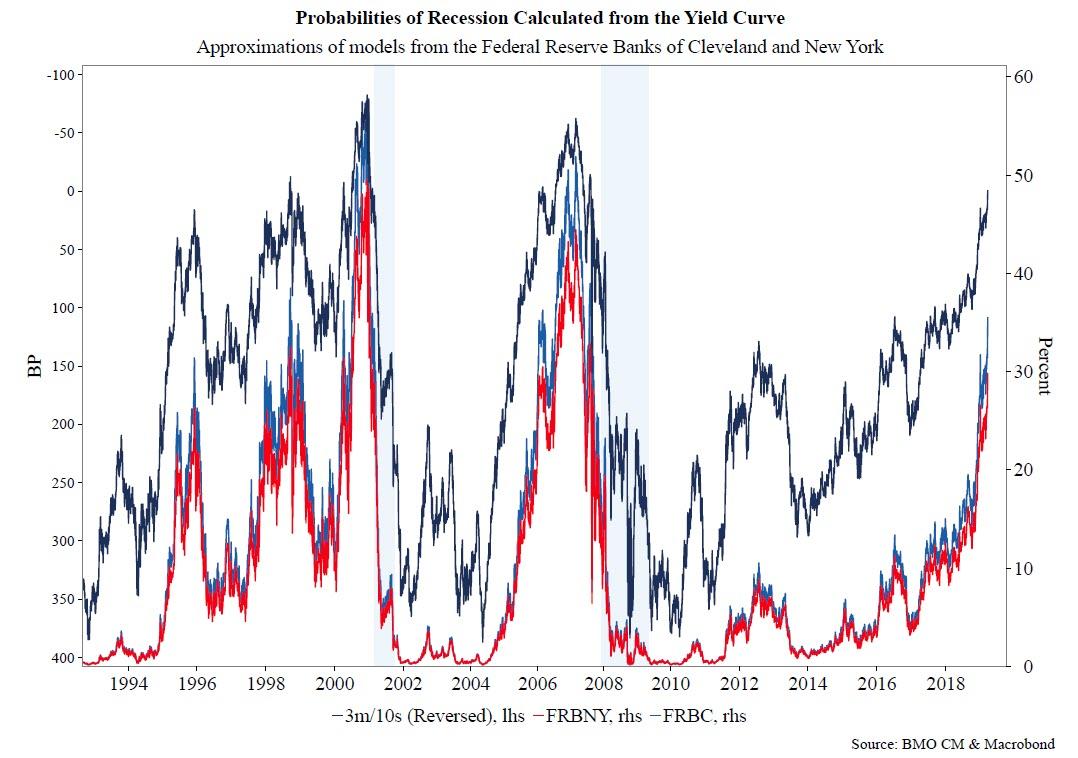the world is burning again pic.twitter.com/qxH4eO9znW
— Alastair Williamson (@StockBoardAsset) March 22, 2019
MT GLOBAL MARKETS Weekly recap wk12 22Mar19 – thread 1/n
• RiskOFF week
• FOMC sensitive XXL,more dovish than expected,no hikes 2019,taper+stop QT
• Global flash M.PMIs further weaker
• massive yield rally, crushing $XLF $KBE
• Creditspreads wider
• JPY top
• VIX/VSTOXX + pic.twitter.com/Id8apmRdwY— Kai Pflughaupt (@MacroTechnicals) March 23, 2019
IHS Markit said Friday that manufacturing activity in Germany dropped to its lowest level in more than six years in March. In France, manufacturing and services slowed down to their lowest levels in three months and two months, respectively. For the euro zone as a whole, manufacturing fell to its lowest level since April 2013.These data sent the German 10-year bund yield to their lowest level since 2016, briefly dipping into negative territory.
In the U.S., the spread between the 3-month Treasury bill yield and the 10-year note rate turned negative for the first time since 2007 — thus inverting the so-called yield curve — according to Refinitiv Tradeweb data. An inverted yield curve happens when short- term rates surpass their longer-term counterparts. This is considered a trustworthy indicator of a recession coming in the near future.
These moves come after U.S. central bank surprised investors by adopting a sharp dovish stance on Wednesday, projecting no further interest rate hikes this year and ending its balance sheet roll-offs.https://www.cnbc.com/2019/03/22/stock-market-wall-street-in-focus-as-growth-concerns-persist.html
Why is the inversion of the 3 Month-10 Year curve – the first since 2007 – such a momentous occasion? Because not only is said inversion the most accurate recession leading indicator, having correctly “predicted” the last 6 recessions with no false positives, most recently inverting in 1989, in 2000 and in 2006, with recessions prompting starting in 1990, 2001 and 2008….
… it also feeds directly into every Wall Street recession model: the more inverted it is, the higher the odds of a recession.
Case in point: as the chart below from BMO shows, recession odds are surging, and are now the highest since the last recession.
Investors pull more than $20 billion from stocks, rush into bonds
LONDON (Reuters) – Global equity funds saw massive outflows this week, a sharp reversal from last week’s inflows as pessimism over economic growth gripped investors once again, driving them instead to search for yield in credit and buy safer assets like bonds.
Some $20.7 billion was pulled from equity funds in the week to March 20, while $12.1 billion was ploughed into bond funds, the biggest inflows since January 2018, Bank of America Merrill Lynch (BAML) strategists said on Friday citing data from EPFR.
Despite big gains for stocks globally this year, positioning is decidedly negative with $66.8 billion outflows from equity funds year-to-date.
This week’s heavy outflows showed investors remain skittish, having re-entered equities with $14 billion inflows last week.
Investors are hunting for yield, the strategists said, noting the ninth straight week of inflows to investment-grade bond funds – $6.6 billion this week – while high-yield bond funds drew in $3.2 billion and $1.2 billion went into EM debt.
The market is struggling to digest a rapid about-turn from the U.S. Federal Reserve on interest rates as economic growth disappoints globally and fears of a deflationary environment return.
A Central Banking Domino Effect Is in Motion
Fed’s Longer Pause Opens Door for Asian Central Banks to Cut
The Fed’s ‘dovish double-down’ has taken the most accurate recession …
Fed announces plan to end balance sheet runoff in September
Citigroup to sell Venezuelan gold in setback to President Maduro …
‘Very much’ the same thing: LAUSD continues to struggle to stay afloat …
NJ taxes on the rise? 7 things residents are paying more for

